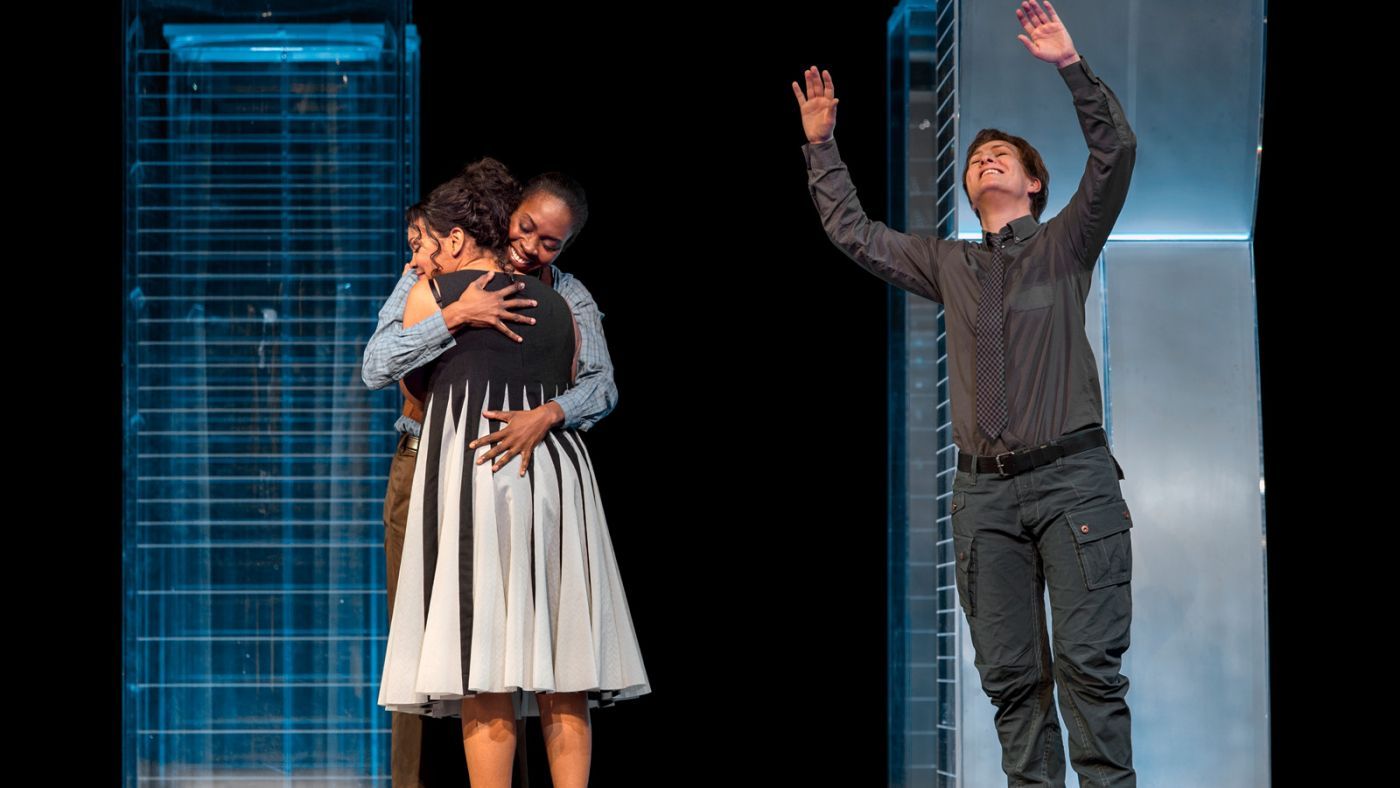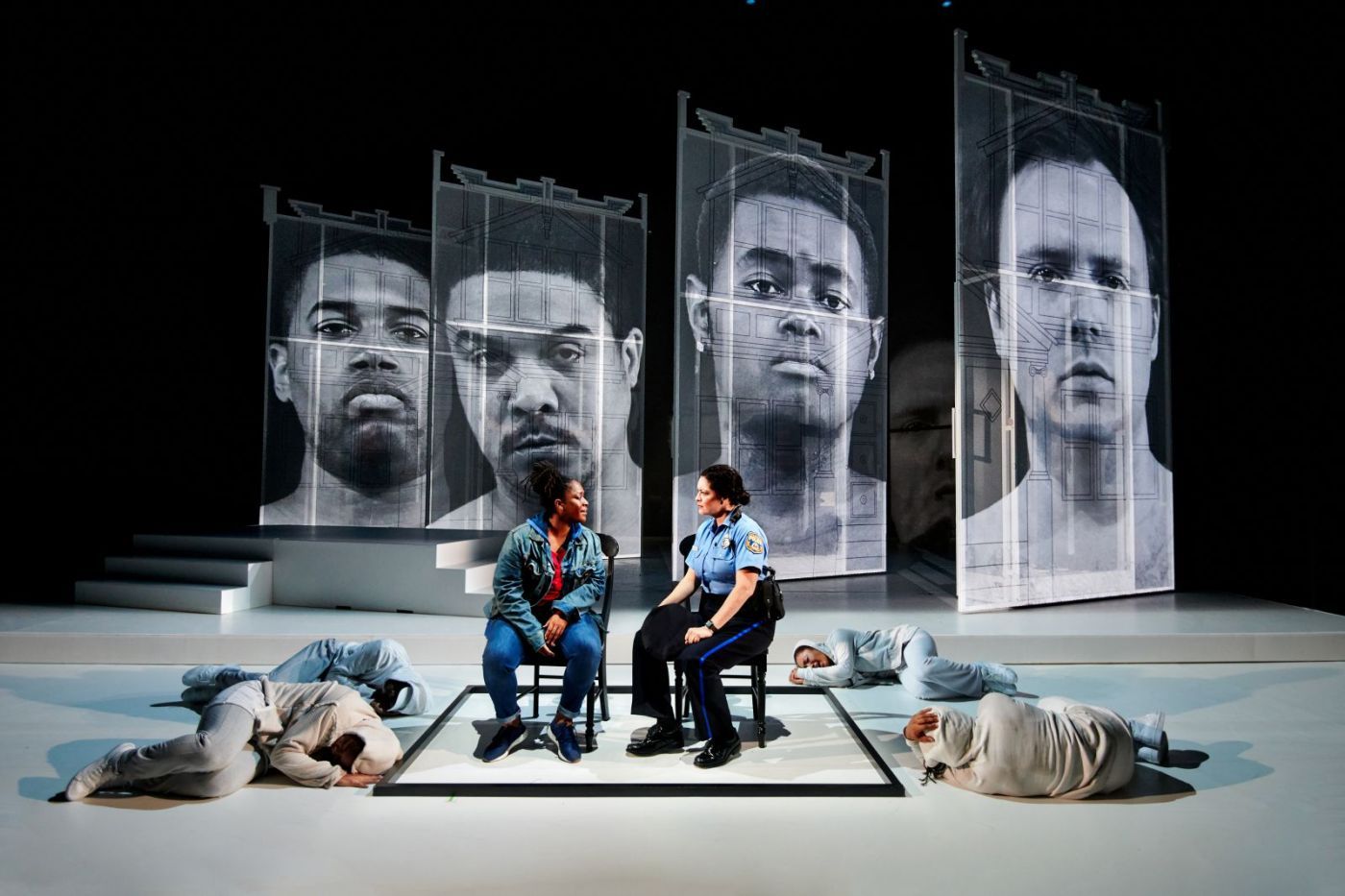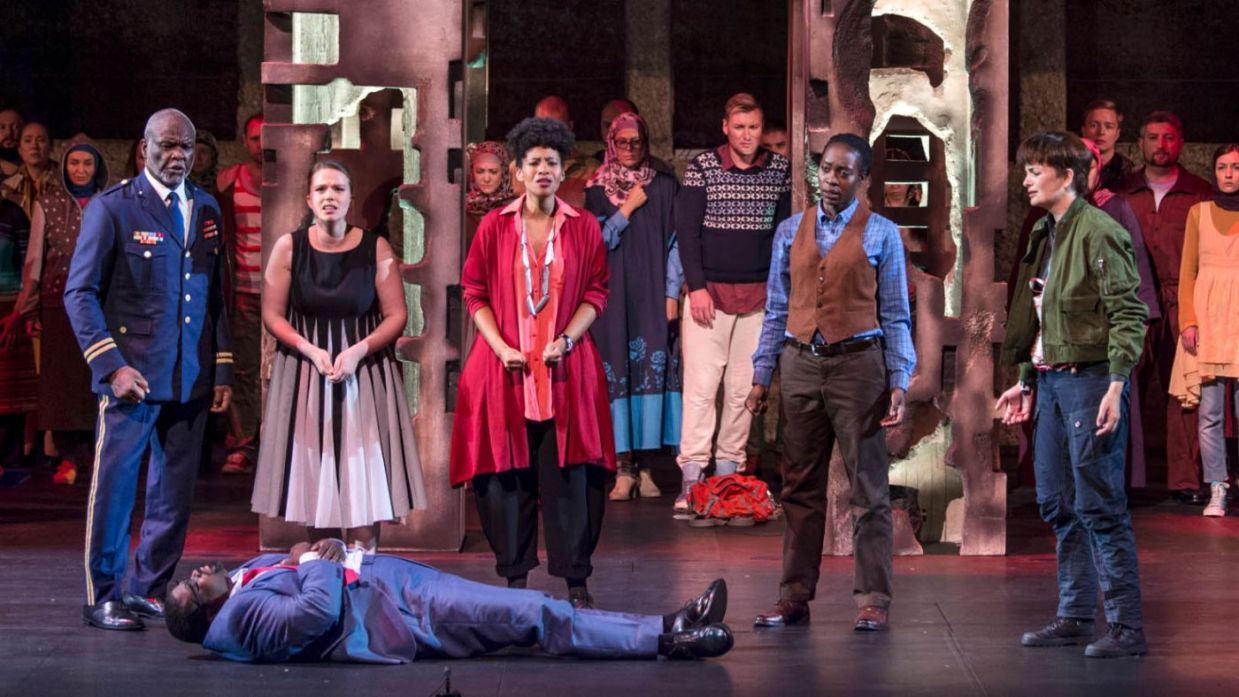
On the eve of diversity and inclusion in opera
In relation to other art forms, opera has in recent decades sometimes seemed little reflective of the Eurocentric character of its repertoire. In order to connect more closely with the recent developments concerning diversity and different layers of society, the future will require us to think much more beyond this Western perspective. How does Dutch National Opera, as one of the leading opera houses in the world, relate to these new dynamics in our current society?
Although questioning prevailing traditions and working methods can be experienced as frightening, director Sophie de Lint does not see it that way. On the contrary, she sees current developments as an unprecedented opportunity not only to reflect on the art form itself, but also to be open to an enriching rediscovery of opera.

DIVERSITY AS AN ADVENTURE FULL OF OPPORTUNITIES
For De Lint, the current call for change is more than welcome. She sees this desire from society as a revelation to question the relevance of the eurocentric character of the art form: "Current developments bring about new insights and place opera as an art form in a different perspective. As an international cultural institution we have been striving for diversity on stage for decades, but in the meantime we have also come to realise that this is only part of the puzzle." Diversity is not just something visual. It is not enough to present a few singers of colour on stage, because inclusion goes much further than that and emphatically requires integration at every level: "Two seasons ago at the National Opera we presented Porgy and Bess with a full cast of people of colour, but with both a conductor and an artistic team made up entirely of people of white descent. Although this was only two years ago, today this is unthinkable from our Dutch context. It is fascinating how quickly such changes take place because they bring opera into a different perspective".
‘‘Otello in a contemporary form can only be done in a team of colour’’
According to De Lint, Dutch National Opera is therefore in a key position within the international opera world. The active movement around diversity is very progressive in the Netherlands and the situation is very different from that of other European countries. For De Lint, this is a challenge: "This situation gives the National Opera its own identity, which is strongly characterised by the emphatic pursuit of greater diversity and greater inclusion. This is both exciting and at the same time complex, because it places Dutch National Opera in a field of tension with divergent views within the international field". In the coming seasons, for example, Dutch National Opera had planned to perform Verdi's Otello, but recent developments showed that this was no longer possible in the current Dutch context. At least, not in the way initially had in mind: "We had a fantastic Otello, a great artistic team and our future chief conductor as musical director, but they were all white. In other European countries this may still be possible, but for us it didn't feel right with the current changes in our society. Otello in a contemporary form is only possible in a team of colour. There must be room for a perspective of colour."

CHANGE IS THE SEED FOR ENRICHING OPERA
For De Lint, innovation can be found both in the development of new repertoire with new stories and in the reinterpretation of the masterpieces from the existing Western canon - because opera is not a given. Opera has a solid tradition of critical scenic interpretation. It is important to keep this tradition in mind when considering diversification. According to De Lint, the centuries-old classical opera repertoire, when it is in an ongoing dialogue between various cultures, could be approached from new and revealing perspectives with regard to race, gender and ethnicity. But new compositions can also unfold into canonical works. In this way, not only can a better balance be achieved between the opera canon and new voices, but this can also lead to continuous interaction, as a result of which diversity and inclusion gradually become part of the core of opera. This will therefore not only lead to a broadening, but above all to an enrichment of the art form.
Renewal of the art form, according to De Lint, lies, among other things, in the nature of the stories that are told on stage. The stories must eventually find their meaning and resonance in the present time. The classical repertoire that is still being performed today often contains elements and subjects that we no longer feel comfortable with nowadays. These are mainly problematic misconceptions, which expose notions of exoticism, misogyny and racism. In general, these ideas clash with our current norms and values and some of us even find them offensive: "We can no longer simply present the longing for such fantasies on the Dutch stage. We must therefore learn to look at these stories with the necessary self-criticism and approach them from new angles. This season we would actually be presenting Aida; a story marked by the glorification of exoticism, but one can distance oneself from it when presenting the work and focus on the human relationships and emotions that are hidden in the story. These are very relevant. So we actually move away from the historical, colonial component of the opera and choose a different perspective in which we focus on human relationships. In the end, for Verdi, too, it was the generally human aspect that was central in the first place and not the exotic decoration."
‘‘We want to give diversity a prominent place”
In order to bring about a lasting change both within the culture and mentality of Dutch National Opera and ultimately the entire opera world, De Lint wants to focus on a slow and broadly resonating process of change. After all, a diverse and inclusive development should be the beating heart of the opera, rather than a fleeting and superficial measure that may generate attention for a while, but does little to bring about structural change. Diversity goes beyond just diverse programming and also makes demands on the organisation and on the way in it is open to the outside world.
For De Lint, innovation can be found both in the development of new repertoire with new stories and in the reinterpretation of the rich masterpieces from the existing Western canon - because opera is not a static given. Opera has a strong tradition of critical scenic interpretation. It is important to keep this tradition in mind from the perspective of diversity. According to De Lint, the centuries-old classical opera repertoire, when placed in an ongoing dialogue between various cultures, could be approached from new and revealing perspectives with attention to race, gender and ethnicity.
But new compositions can also unfold into canonical works. In this way, not only can a better balance be achieved between the operatic canon and new voices, but this can also lead to continuous interaction, as a result of which diversity and inclusion gradually become part of the core. This will therefore not only lead to a broadening, but above all to an enrichment of the art form.

THE BEGINNING OF A NEW WORLD OF MUSIC THEATRE
The discussion on diversity remains a delicate subject. According to De Lint, in order to be able to establish a sustainable interaction, we must be fully open to each other's world and perspective in order to be able to find each other in a meeting of mutual interest and respect: "I also see our FAUST [working title] as such an encounter. Not only did we have diversity on stage, but diversity was also to be found in every fibre of the production: in the composition of the team, the composers, the musical material, but also in the working method we used a new, more inclusive model. With FAUST all the pieces of the puzzle seemed to fall into place. I see this production as the enriching beginning for a new world of music theatre."
Above all, De Lint sees diversity and inclusion as an inspiring adventure: "We still have a long way to go and we are only at the beginning. But the fact that today we are more than willing to engage in this fundamental dialogue is already an essential step in the right direction. And we want to give diversity a prominent place."



